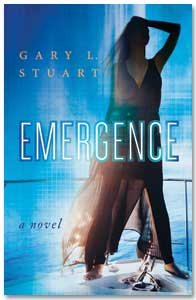I know how absurd it sounds—unethical words. Words are not immoral, unethical, or even touchy. They don’t have norms or standards; they’re just words. They matter, of course. But not like truth matters, or Black lives matter, or integrity matters.
Words matter because they mean something. When used incorrectly, their meaning is lost, or at the very least not understood. When used loosely, they are easily mistaken for the opposite of what the writer intended.
“Cot” is a bed. “Caught” is a condition. Context can cure confusion, almost as well as spelling can. “John laid down on his caught and went to sleep,” will signal the reader that the writer dozed off as she wrote. The notions of word and word meaning are problematic, but care and spell checking can avoid being laughed at or sued.
Now, to the ethics of it. Perhaps the most important ethical construct for writers is the obligation writers have to readers. We owe them a clear, unavoidable, easily met obligation. We owe them original work, neither plagiarized nor made-up facts, and trustworthiness. I covered that briefly in my August 31, 2018 blog. We also owe readers authenticity and believability. When we say something is relevant, it should be so. If we are giving them good news, it must be just that—good. I covered that in my November 28, 2018 blog.
As writers, we teach as we write. Aristotle knew that. From him and his kin, we know about ethos, logos and logos. We use logos to sneak into the heads of our readers. We use pathos to appeal to our readers’ emotions. And we use ethos, the Greek word for “character,” to make our writing honest. Those three words were portioned in my January 24, 2019 blog. We owe our readers ethicality.
Still, is there such a thing as using ethical words? The answer is long division—breaking down paragraphs into sentences, sentences into words, and words into meaning. At that base level, we can glimpse the ethics of writing words. I started this discussion in my August 8, 2019 blog titled, “The Ethics of Writing Words.” That blog touched on profanity, vulgarity, blasphemy and the word “Fuct.” The issue was presented non-genre and without differentiation as to writing words as opposed to using words in writing.
In today’s fractured political world, we are in the middle of a pandemic wreaking havoc on countries, states, cities, towns, markets and elections. In this environment, especially in nonfiction writing, using unethical words is fraught with ethical ramifications.
Hypothetically, let’s say someone published a mainstream editorial opinion about the debate over when the American economy should be opened. On one side of the debate is the likelihood of killing more people. The other side keeps more people out of work. The question in the op-ed is whether our national policy should focus on losing jobs over losing lives because tens of millions are out of work and only tens of thousands have died. What are the ethical constraints and implications of favoring one over the other?
I broached this subject in an earlier blog by calling opinion-writing high on the list of ethical misconduct. That is because op-ed writers are in nonfiction mode but are not taken as truthful. Op-eds are neither true nor false; they are just opinions. Here, I’m breaking down the op-ed itself to words used in the op-ed. Does that change the calculus?
In my hypothetical I used trigger words—killing—loss of lives—out of work—open the economy. By focusing on just those words, we can assess a base level of ethicality.
The word, killing, when used as a noun, means an act causing death, especially deliberately. Abstractly, out of context, it is innocent, as in to deprive of life. To cause death. To slay. To destroy, To extinguish. To kill hope or faith. Accordingly, op-ed writers should be specific when using the word killing. For families of the dead victims of COVID-19, the word “killing” reaches them in ways the op-ed writer did not intend. That’s an ethical norm.
The phrase, loss of lives, is typically used to avoid using death or died. It’s a way around hurting people close to those who lost their lives. In this context, it’s an effort to soothe, rather than hurt. That’s an ethical norm.
The phrase, out of work, is euphemistic, and typically used to avoid the reason for being out of work—fired, canned, thrown out on the street, furloughed, discarded as unneeded. It indicates the writer has feelings too. That’s an ethical norm.
The phrase, open the economy, is a trigger word, used intentionally and fired for effect. It is a frustrating reality of the COVID-19 impact on the economy in Spring 2020. Some policymakers told Americans they had to get back to work even if doing so meant more death. The phrase “The Coronavirus Cure Cannot Be Worse Than the Problem Itself,” was a stab wound to many still grieving. Pundits of a particular political frame of mind argued that Americans should “break free of the shackles of quarantine to reboot the economy.” More piling on pain. Those comments breach ethical norms.
This blog is not about economic rules in times of pandemic loss of life. Nor is it about opening our economy too soon, causing more death, as opposed to keeping it shuttered at the risk of more unemployment and businesses shutting down permanently. It’s just about using words and phrases designed to win elections rather than to defeat COVID-19. That’s an ethical norm.

I am an author and a part-time lawyer with a focus on ethics and professional discipline. I teach creative writing and ethics to law students at Arizona State University. Read my bio.
If you have an important story you want told, you can commission me to write it for you. Learn how.






 I am an author and a part-time lawyer with a focus on ethics and professional discipline. I teach creative writing and ethics to law students at Arizona State University.
I am an author and a part-time lawyer with a focus on ethics and professional discipline. I teach creative writing and ethics to law students at Arizona State University.  My latest novel is Emergence, the sequel to Let’s Disappear.
My latest novel is Emergence, the sequel to Let’s Disappear.  If you have an important story you want told, you can commission me to write it for you.
If you have an important story you want told, you can commission me to write it for you.